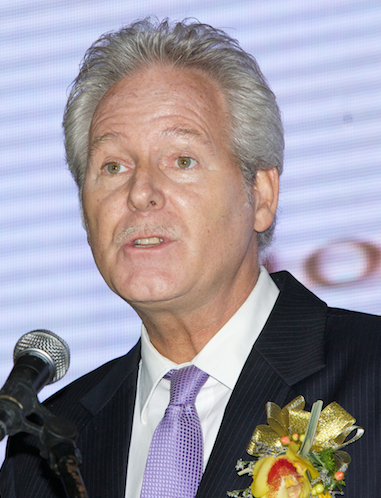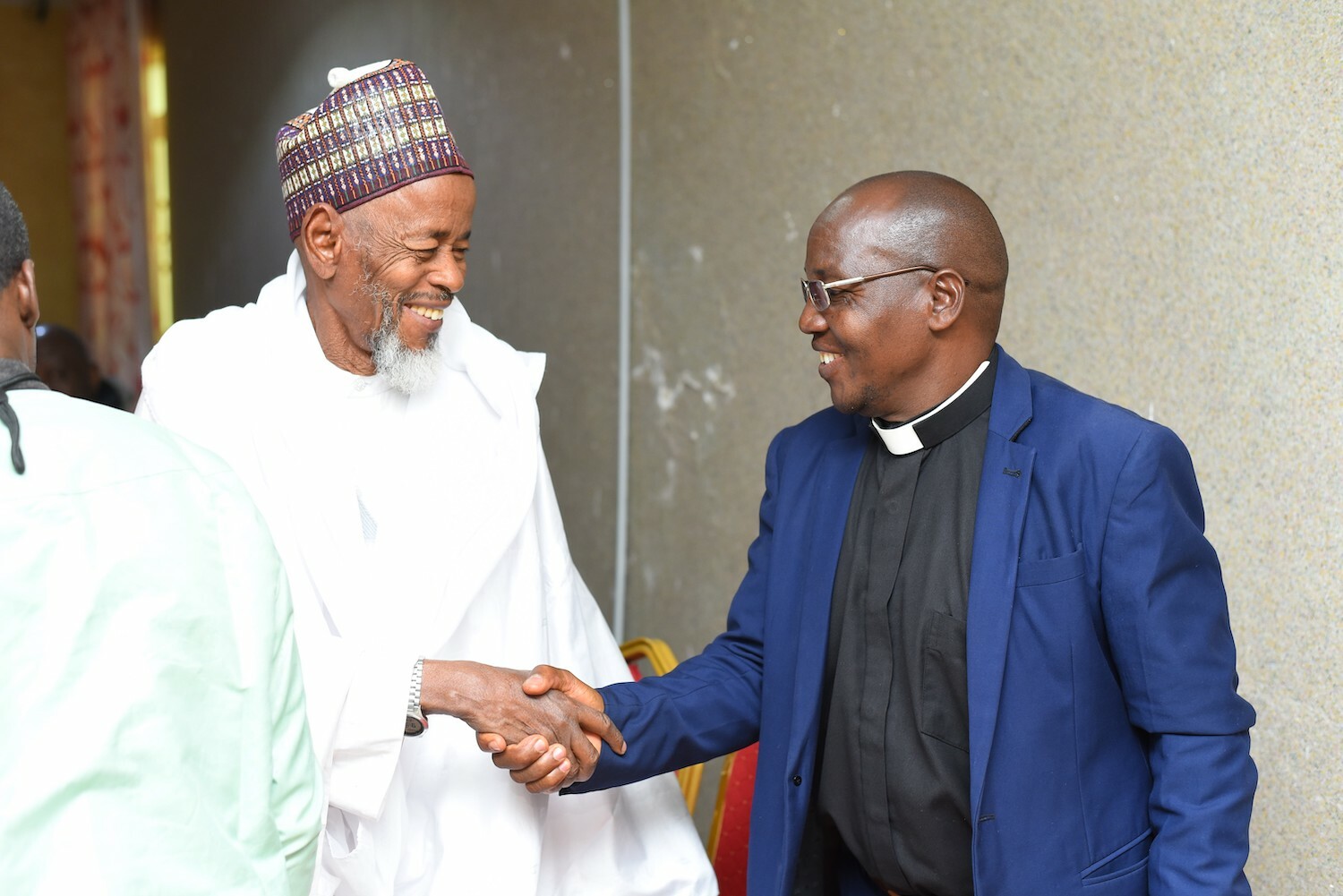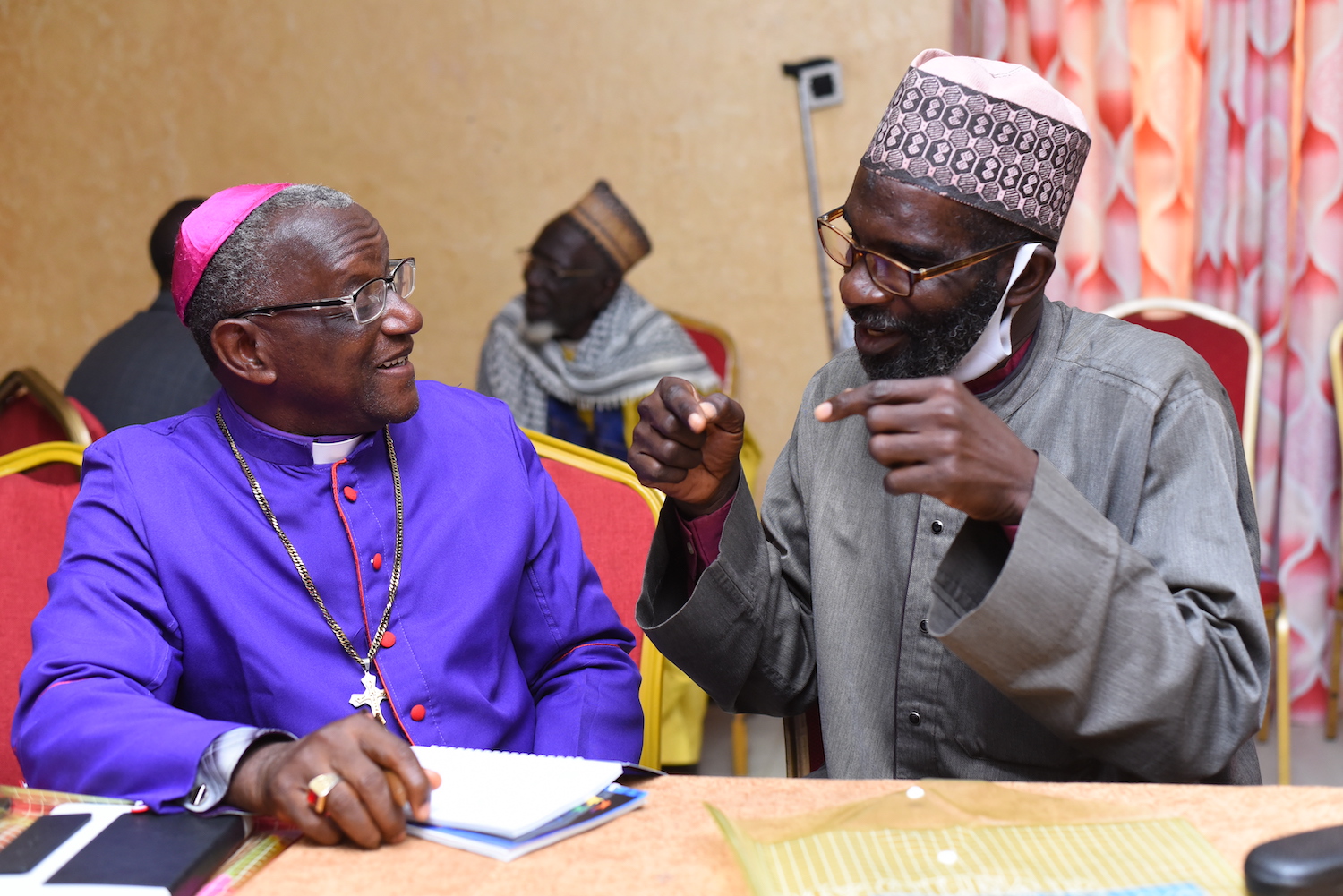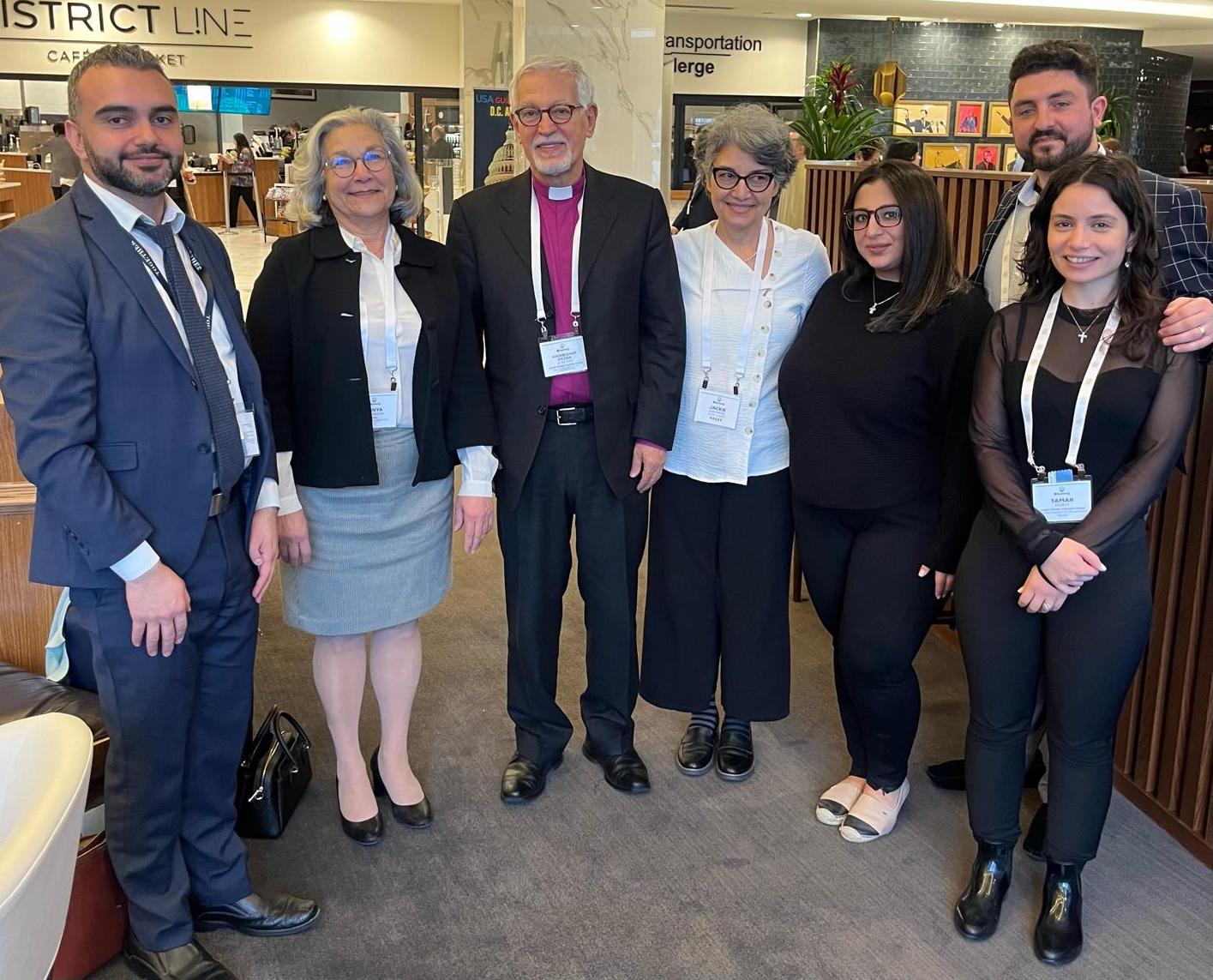Global Peace Leadership Conference
November 20-22, 2013
Manila, Philippines
Theme: “Moral and Innovative Leadership: A Platform for Sustainable Peace and Development”

Dr. Hubert Gijzen, Director of UNESCO’s Jakarta Branch
Excellencies, distinguished participants, Ladies and Gentleman,
While we are gathered here in Manila, the Philippines, in the close proximity of the devastated area that was hit by Super Typhoon Haiyan-Yolanda, the disaster response is finally shaping up. This disaster of unprecedented scale, has caused the loss of so many lives, and severe damages to infrastructure and livelihoods. On behalf of UNESCO, I would like to convey our deepest sympathy to the Government of the Philippines, and to all people affected by this devastating natural disaster. I regret that I will have to leave immediately after the opening session, to join the United Nations team to help step up our joint emergency response with the Government and many national and international partners.
Ladies and gentlemen,
It is a great pleasure to join you in this conference, and I particularly appreciate the invitation to contribute to the debate on “Moral and Innovative Leadership: a Platform for Sustainable Peace and Development”. Development, which by the way, is far from sustainable today.
This Global Peace Leadership Conference comes at a critical juncture – as we advance towards the target date for the Millennium Development Goals, as we shape a new global development agenda to follow 2015. The post-2015 agenda must address the big questions of our time – questions about eradicating poverty, enhancing food security, promoting sustainable energy, managing water and environmental resources, controlling disease, mitigating natural and man-induced disasters, and fostering sustainable cities, and of course the big question of peace and security.
The defining challenge we are faced with is that the world we are living in today is alarmingly out of balance. This relates to the serious imbalance between people and nature, as reflected in the concept of sustainable development itself. But maybe even more worrisome is the serious imbalance between people. For many, the last century brought unprecedented progress, prosperity, and freedom. For large groups, however, it marked an era of poverty, subjugation, and humiliation.
We live in a world where the richest 1% of adult people own 40% of global assets, while the bottom half of adult population, the poor, own only 1% of global assets, a world where modern medicine has developed answers to many diseases, yet millions of people die every year of curable illness; where many developed nations produce surpluses of food, while close to a billion people suffer from hunger.
These sharp imbalances and consequent feelings of injustice and inequality have fueled polarized perceptions, which in turn lead to violence and conflict. A world with such sharp imbalances between people and nature, and between people, is indeed far away from becoming sustainable.
We need to urgently address both imbalances – between people and planet earth and between people – if we wish to give true meaning to sustainable development and if we wish to create a new world, free of terrorism, a world where people live in harmony between themselves and with nature. That is what sustainable development is all about, to re-balance economy, society and nature.
Peace and security remain key challenges. More than 1.5 billion people live in countries affected by violent conflict. At the same time, many countries are engaged in a process of democratic opening or are rallying to ensure respect for human rights, dignity and freedom. It is a call to achieve the universal promise of human emancipation and to forge a new humanism. The number of countries in “post-conflict” situations, in the strict sense of the term, has fallen, but one fifth of humanity lives in conditions of permanent tension, characterized by myriad stress factors such as struggles for access to resources, including freshwater, socioeconomic inequalities and various forms of violence.
cknowledgement of these precarious situations and support for conflict prevention and transition and/or fragile countries require comprehensive, coordinated long-term approaches, with major emphasis being given to building capacities in and through education, culture and the sciences.
Ladies and gentlemen,
Since its establishment in the immediate aftermath of the Second World War, UNESCO has been an organization that promotes peace and mutual understanding amongst people. This very principle is deeply-rooted in the first line of UNESCO’s constitution, which states:
“since wars begin in the minds of men, it is in the minds of men that the defenses of peace must be constructed.”
The world has of course vastly changed since that day when the constitution was adopted in November 1945, but this principle – of building peace in the minds of people – continues to inspire and guide our policies and actions each and every day. UNESCO’s mission is to contribute to the building of peace, the eradication of poverty, sustainable development and intercultural dialogue through all four major fields that have been entrusted to us, namely education, the sciences, culture, and communication and information.
In the field of education, UNESCO works with Member States to improve the quality of education since it is one of the most powerful tools for conquering the evils of ignorance and hate, and for promoting the values of tolerance, justice and equality. Via its programmes in Education for Sustainable Development (ESD), the organization further contributes to generating better understanding amongst young people of the very concepts of sustainable development, and teach them to respect and appreciate our cultural and religious differences. As such it is important that education encompasses all elements of human development – including values, knowledge, ethics, attitudes and skills, as well as the capacities for the non-violent resolution of conflicts.
I believe that this conference will showcase a significant role to create a robust, interactive dialogue among academics, experts, media, government, NGOs, private sector and the public. We hope that this event will inspire all of us to promote such universal themes as friendship, world harmony and peace in today’s increasingly complex and interconnected world.
Half of the world’s population is under 25 years old. These young women and men will have to cope with the consequences of the unsustainable use of the Earth and its resources. This situation calls for new approaches and firm commitments for a sustainable future. Young people represent a potential for change if access to education can be ensured and if young people’s involvement in the decision-making process can be strengthened. Young people are not only agents for economic growth, but also a force for social transformation and progress, with peace and sustainable development as core objectives.
In the field of Science, UNESCO has been stimulating intellectual cooperation, exchange, networking and dialogue in strategic areas, to address the earlier mentioned imbalances through science, technology and innovation. The MDGs and other global challenges such as climate change will not be achieved by simply upscaling efforts, by merely a “more of the same’ approach. In other words, this calls for creativity and innovation – a key role for science. While previous science based revolutions, such as the industrial revolution, the medical revolution, the green revolution and the current ICT revolution, have all brought unprecedented progress and wealth to some, it has left behind many others, while at the same time causing severe impacts on the environment, natural resources and climate, thereby putting at risk the long term survival of mankind. What is needed therefore is a paradigm shift that leads to a new science based revolution towards true sustainable development and towards the creation of a more balanced way of life for all people in the world.
In the field of Communication and Information, UNESCO promotes the important role of the media in advancing dialogue among religions, civilizations, cultures and peoples to enhance mutual understanding and knowledge among them. The programmes further advocate freedom of speech and freedom of access to information.
Unfortunately, the world is witnessing an increasing violence against journalists. Violence must not be allowed to mute the freedom of speech and freedom of expression. This is the goal of the UN-wide Plan of Action on Safety of Journalists and the Issue of Impunity that UNESCO is leading – to halt a scourge that kills many and silences many more through fear, and to seek redress for these crimes. We need to further strengthen the environment for an independent and pluralistic media, and ensure that the media serve the needs of society by reflecting a diversity of political views, cultures, languages and beliefs.
In the field of Culture, the promotion of intercultural dialogue and cultural diversity are strong means to prove that cultural diversity is a source of societal enrichment by revealing a wide range of visions of the world, explanations, ideologies and sensitivities. UNESCO upholds the strong belief that diverse cultural identities, including cultural expressions, language, traditions and belief, are an integral part of the richness of human experience and as such must be respected, protected and promoted. It is also an indispensable asset for poverty reduction and the achievement of sustainable development. This concept has been adopted in the Universal Declaration on Cultural Diversity.
In recognition of these functions of culture, the Government of Indonesia will host, next week, the Bali World Culture Forum. This forum has the potential to become a lead platform for dialogue, discussion and action, to ensure that the mindset of all peoples in this world is opened to the fundamental principles of tolerance and peace, and to create a global commitment to the concept of sustainable development.
Ladies and gentlemen,
Both UNESCO and Global Peace Foundation, consider Education a key element to build sustainable peace. Education is the foundation of any lasting peace. It is the driving force behind freedom and tolerance. It stems the tide of ignorance and mutual misunderstanding, the means by which disagreements all too often degenerate into violence. Education fosters the culture of dialogue that is necessary to resolve conflicts.
That is why UNESCO campaigns for quality education for all going further than the basics of reading and writing. Education must encompass the teaching of human rights, living together and respect for others. Peace education is a key component. Every child in the world should know their rights, and learn their own history and that of others, so as to be able to understand the equal dignity of cultures and draw lessons from the crimes and violence of the past. This vision is the key to tolerant citizenship in a globalized world. It requires a widespread effort to train teachers and design suitable school curricula.
These principles inspire all of UNESCO’s work, in particular through the International Decade for the Rapprochement of Cultures (2013-2022), adopted by UNESCO’s General Conference and the United Nations General Assembly. ‘Rapprochement’ means the establishment or re-establishment of harmonious relations. The entire UN system is called upon to help build a culture of peace. The main objective of the International decade for the Rapprochement of Cultures is, therefore, to bring attention to the valuable benefits of cultural diversity worldwide, and help strengthen dialogue among the world’s citizens in this respect.
In September this year, a Memorandum of Understanding (MoU) was signed between the UN Alliance of Civilizations and UNESCO. By virtue of this MoU, both parties confirm their commitment to promote intercultural dialogue especially among youth, taking particular advantage of timely frameworks such as the International Decade for the Rapprochement of Cultures.
Education is a fundamental human right, and there can be no justification for depriving anybody of that right. As we mobilize the potential of education to prevent war, we must ensure the quality and continuity of teaching, even in the event of conflict. This is the purpose of UNESCO’s work to protect schools and teachers, and to bring education to refugees and displaced persons. It is also, for UNESCO, the way to lay the foundations of future peace. With this hope in mind, we must give to future generations a culture of dialogue and build, through education, a world that is not only more connected, but also more compassionate.
Ladies and Gentlemen,
I believe that this conference will showcase a significant role to create a robust, interactive dialogue among academics, experts, media, government, NGOs, private sector and the public. We hope that this event will inspire all of us to promote such universal themes as friendship, world harmony and peace in today’s increasingly complex and interconnected world.
As we chart a way forward, the humanist mandate of UNESCO must remain our compass setting. More than ever today, lasting peace and sustainable development require cooperation. Their foundations cannot be built solely on political and economic arrangements – they must be constructed in the minds of women and men. Cooperation in education, the sciences, culture, communication and information has never been more urgent in this context.
In finalizing, I would like to remind that UNESCO is owned by its Member States, and therefore it belongs to each one of you. Your wisdom, energy, dedication, knowledge, skills and aspirations are what will steer your societies, and our shared planet, towards a more sustainable and peaceful future. It is in fact quite simple: together we can address the existing imbalances I spoke about, and as such we can also achieve the higher goal as reflected in the UNESCO constitution, namely…..”to create peace in the minds of people”.
Thank you for your attention.



